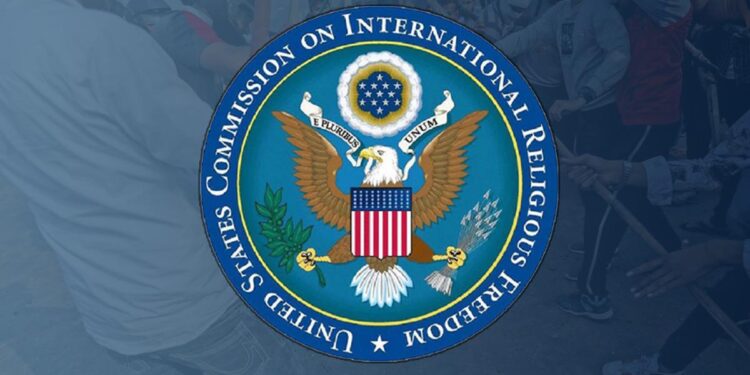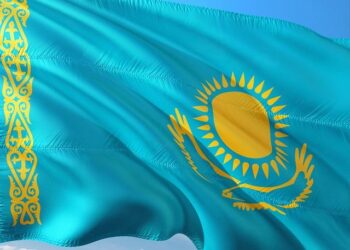A delegation from the U.S. Commission on International Religious Freedom (USCIRF) recently visited Kazakhstan to engage with government officials, religious leaders, and civil society representatives on issues surrounding religious freedom. The visit, highlighted on USEmbassy.gov, aimed to assess the current climate for religious expression in the Central Asian nation and to promote continued progress in protecting fundamental human rights. This high-level dialogue underscores the ongoing commitment of both the United States and Kazakhstan to uphold religious tolerance and address challenges facing diverse faith communities.
USCIRF Delegation Engages Kazakh Officials on Enhancing Religious Freedom Protections
During their recent visit, the delegation from the U.S. Commission on International Religious Freedom (USCIRF) held comprehensive discussions with senior Kazakh government officials aimed at reinforcing the nation’s commitment to religious liberty. Key topics included addressing legislative frameworks, improving oversight mechanisms, and enhancing transparency in the registration of religious organizations. The dialogue also examined challenges faced by minority communities and explored collaborative strategies to foster a more inclusive environment that respects diverse faiths.
Highlights of the discussions included:
- Strengthening protections for religious minorities in law enforcement practices
- Ensuring equitable access to places of worship and religious education
- Promoting interfaith dialogue as a tool for social cohesion
- Expanding government and civil society partnerships to monitor religious freedom issues
| Key Focus Area | Expected Outcome |
|---|---|
| Legal Reforms | More clear and fair religious registration laws |
| Monitoring & Enforcement | Improved response to religious freedom violations |
| Community Engagement | Stronger interfaith partnerships |
| Public Awareness | Greater understanding of religious rights |
Addressing Challenges Faced by Religious Minorities in Kazakhstan
Kazakhstan’s religious minorities continue to encounter significant hurdles, including restrictive registration processes, societal discrimination, and limited access to places of worship. The USCIRF delegation highlighted the importance of transparent legal frameworks that protect the rights of all faith communities, particularly smaller and nontraditional groups. While the government has made strides in promoting religious tolerance, challenges persist in areas such as administrative barriers and uneven enforcement of existing laws, which disproportionately affect minority religions.
The delegation emphasized the need for sustained dialogue between government officials, religious leaders, and civil society to foster an environment where religious freedom can fully flourish. Key concerns raised during meetings included:
- Streamlining registration: Simplifying bureaucratic processes for religious communities to achieve official status.
- Combating discrimination: Enhancing public education to reduce prejudices and misinformation.
- Protecting worship spaces: Ensuring equitable access to land and facilities for minority religious groups.
| Challenge | Impact | Recommended Action | |
|---|---|---|---|
| Registration Barriers | Limited legal recognition | Simplify procedures | |
| Social Discrimination | Marginalization of communities | Public awareness campaigns | |
| Challenge | Impact | Recommended Action | |
| Registration Barriers | Limited legal recognition | Simplify procedures | |
| Social Discrimination | Marginalization of communities | Public awareness campaigns | |
| Access to Worship Spaces | Unequal access to land and facilities | Ensure equitable allocation of resources |
If you’d like me to help with anything else-like styling improvements, adding more content, or making the section more accessible-just let me know!
Recommendations for Strengthening Legal Framework and Promoting Interfaith Dialogue
To enhance the protection of religious freedoms, it is crucial for Kazakhstan to pursue targeted reforms that clarify and strengthen its existing legal framework. Key recommendations include:
- Updating legislation to align with international human rights standards, ensuring that laws protect all religious groups equitably.
- Establishing transparent registration processes for religious organizations to avoid bureaucratic barriers that hinder community activities.
- Improving judicial oversight to prevent misuse of anti-extremism laws against peaceful religious expression.
Simultaneously, fostering genuine interfaith dialogue can build societal trust and mutual respect amid Kazakhstan’s diverse religious landscape. Priorities for promoting dialogue include:
- Creating interreligious councils at national and regional levels to facilitate regular communication among faith leaders.
- Supporting community-based initiatives that encourage collaboration on social and cultural projects.
- Launching educational programs that highlight shared values and counteract stereotypes.
| Legal Reform Target | Expected Impact | Timeline |
|---|---|---|
| Legislation Alignment | Improved protections for religious minorities | 1-2 years |
| Registration Process Revamp | Streamlined community engagement | 6-12 months |
| Interfaith Council Establishment | Enhanced interreligious cooperation | Immediate to 1 year |
In Retrospect
The visit by the USCIRF delegation to Kazakhstan underscores the ongoing commitment of U.S. officials to engage with international partners on issues of religious freedom and human rights. As Kazakhstan continues to navigate its path toward greater openness and tolerance, such dialogues play a crucial role in promoting mutual understanding and reinforcing global standards for the protection of religious liberties. The USCIRF’s engagement reflects a broader effort to support religious freedom as a fundamental human right worldwide.
















